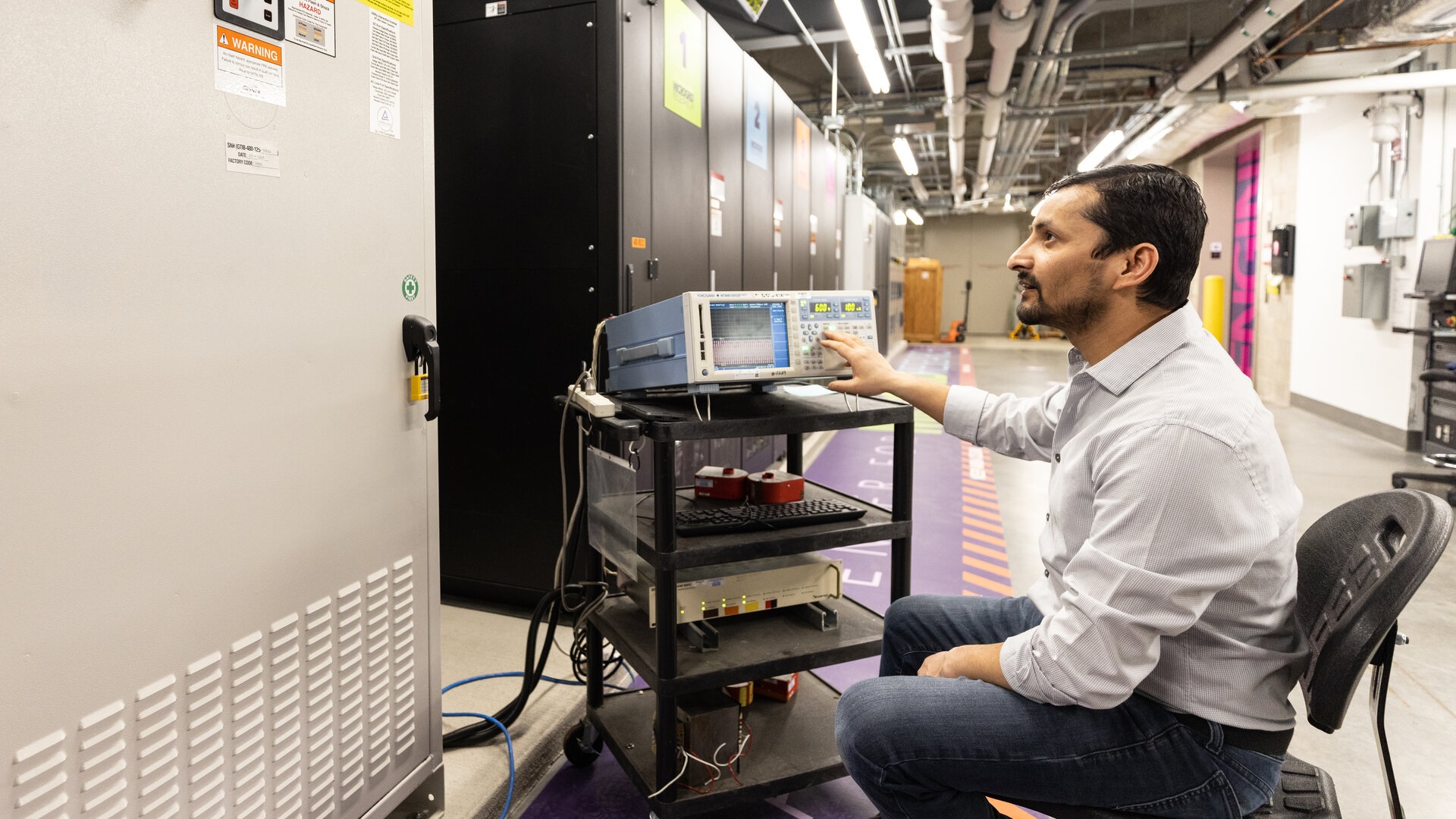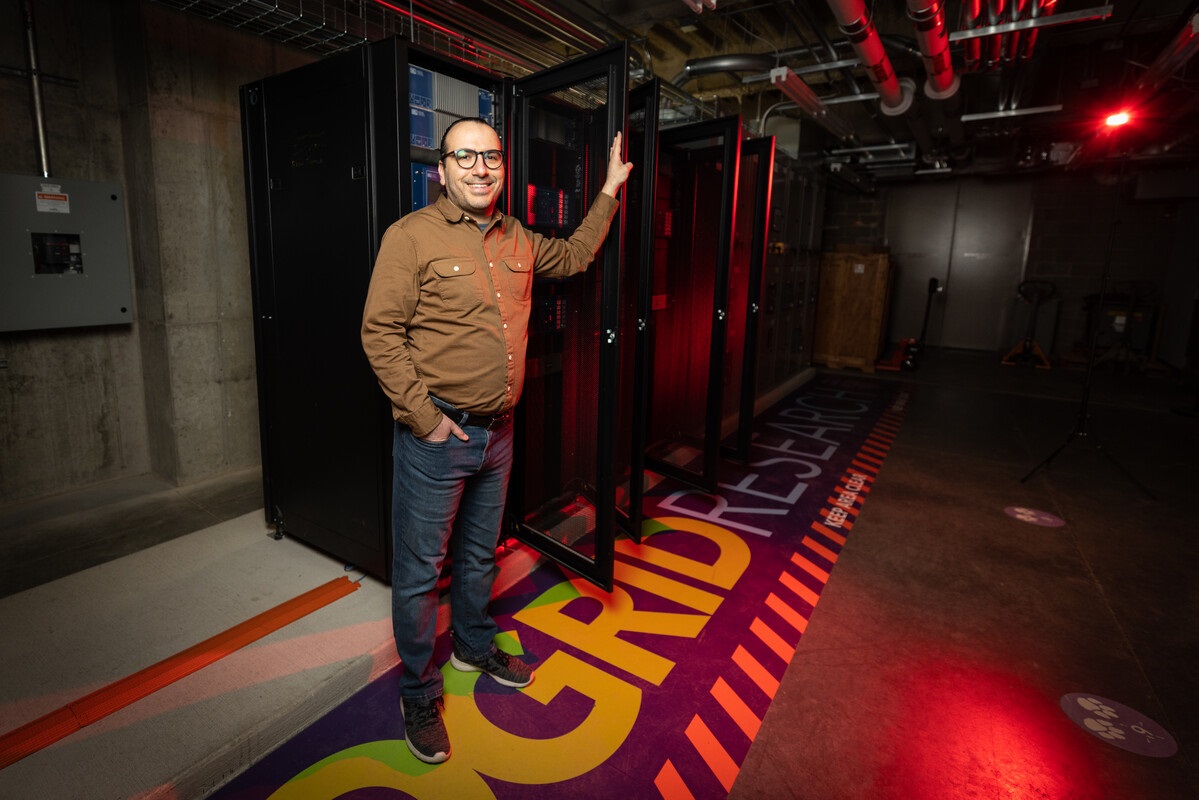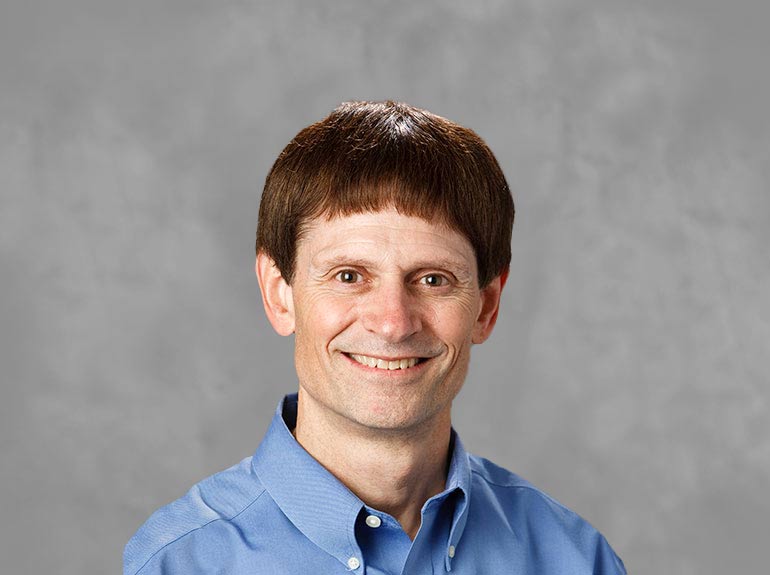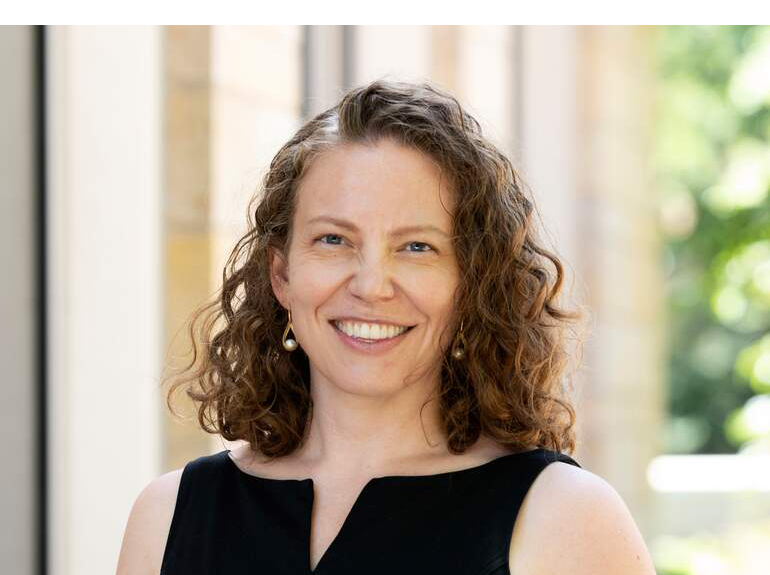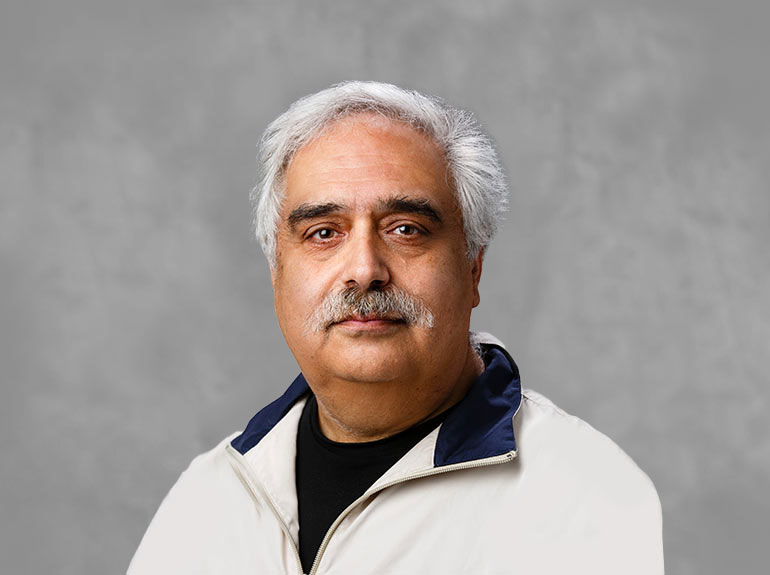Coursework and Degree Requirements
To complete the requirements for the M.S. in Electrical Engineering, students must successfully complete 10 courses (30 credits) with a minimum GPA of 2.7. Students without an undergraduate degree in electrical engineering, computer engineering or a related field may need additional courses beyond the 30 credits needed for this master's degree.
There are two pathways to complete the program:
- Project-based path: 8 technical courses (24 credits) and a two-semester design project (6 credits)
- Course-based path: 10 technical courses (30 credits)
See course descriptions in our course catalog
STEM Approved Program
The Power Systems concentration emphasizes the study and control of power systems, distribution, renewable energy, electrical machines and power electronics. Power electronics enables the economic viability of renewable energy systems via its ability to transform electrical energy in one form to another with near 100% efficiency.
Required Core Courses (5 courses = 15 credits)
- ETLS 744 Power Systems and Smart Grids
- ETLS 746 Power Electronics
- ETLS 747 Electrical Machines and Vehicles
- ETLS 748 Renewable Energy Generation
- ETLS 810 Advanced Controls
Technical Electives (5 courses = 15 credits)
Choose five technical electives from course list below:
- ETLS 620 Analog Communication Systems
- ETLS 621 Digital Communication Systems
- ETLS 630: Sensors for the Internet of Things (IoT) and Autonomy
- ETLS 631 Wireless Sensor Networks
- ETLS 675 Digital Signal Processing
- ETLS 676 Real Time DSP
- ETLS 678 Wearable Systems, Data and IoT
- ETLS 679 Embedded Cyber Physical Systems
- ETLS 699 Selected Topics
- ETLS 739 EV Market and Technologies
- ETLS 745 Power Systems Operations and Controls
- ETLS 753 Power Systems Protection and Relay
- ETLS 750 Smart Distribution Systems
- ETLS 751 Electromagnetic Fields and Waves
- SEIS 631 Foundations of Data Analysis
- SEIS 663 Information Technology Security and Networking
- SEIS 763 Machine Learning
- SEIS 764 Artificial Intelligence
- ETLS 881 Engineering Project Credits (2 consecutive semester of 6 credits total)
Other ETLS/SEIS courses approved by Program Director
The Smart Grid and Electric Vehicles concentration prepares students to meet the challenges of the 21st century electric grid. Power engineers will lead the way in decarbonizing the electric grid and electrifying the transportation industry.
Required Core Courses (5 courses = 15 credits)
- ETLS 744 Power Systems and Smart Grids
- ETLS 746 Power Electronics
- ETLS 747 Electrical Machines and Vehicles
- ETLS 739 EV Market and Technologies
- ETLS 750 Smart Distribution Systems
Technical Electives (5 courses = 15 credits)
Choose five technical electives from course list below:
- ETLS 620 Analog Communication Systems
- ETLS 621 Digital Communication Systems
- ETLS 630: Sensors for the Internet of Things (IoT) and Autonomy
- ETLS 631 Wireless Sensor Networks
- ETLS 675 Digital Signal Processing
- ETLS 676 Real Time DSP
- ETLS 678 Wearable Systems, Data and IoT
- ETLS 679 Embedded and Cyber Physical Systems
- ETLS 699 Selected Topics
- ETLS 745 Power Systems Operations and Controls
- ETLS 748 Renewable Energy Generation
- ETLS 751 Electromagnetic Fields and Waves
- ETLS 753 Power Systems Protection and Relay
- ETLS 810 Advanced Controls
- SEIS 631 Foundations of Data Analysis
- SEIS 663 Information Technology Security and Networking
- SEIS 763 Machine Learning
- SEIS 764 Artificial Intelligence
- ETLS 881 Engineering Project Credits (2 consecutive semesters of 6 credits total)
Other ETLS/SEIS courses approved by Program Director
The Communications and Signal Processing concentration focuses on the study of communication and processing of information, which is the foundation for all our digital lives. Applications can be found in all areas around us such as IoT, wearables, mobile health care, autonomous vehicles, Artificial Intelligence, and communication of such information over a variety of communication networks such as WIFI, Bluetooth, 4G LTE, and 5G wireless networks.
Required Core Courses (5 courses = 15 credits)
- ETLS 620 Analog Communication Systems
- ETLS 621 Digital Communication Systems
- ETLS 631 Wireless Sensor Networks
- ETLS 675 Digital Signal Processing
- ETLS 678 Wearable Systems, Data and IoT
Technical Electives (5 courses = 15 credits)
Choose five technical electives from course list below:
- ETLS 630: Sensors for the Internet of Things (IoT) and Autonomy
- ETLS 676 Real Time DSP
- ETLS 679 Embedded and Cyber Physical Systems
- ETLS 699 Selected Topics
- ETLS 739 EV Market and Technologies
- ETLS 744 Power Systems and Smart Grids
- ETLS 745 Power Systems Operations and Controls
- ETLS 746 Power Electronics
- ETLS 747 Electrical Machines
- ETLS 748 Renewable Energy Generation
- ETLS 750 Smart Distribution Systems
- ETLS 751 Electromagnetic Fields and Waves
- ETLS 753 Power Systems Protection and Relay
- ETLS 810 Advanced Controls
- SEIS 631 Foundations of Data Analysis
- SEIS 663 Information Technology Security and Networking
- SEIS 763 Machine Learning
- SEIS 764 Artificial Intelligence
- ETLS 881 Engineering Project Credits (2 consecutive semesters of 6 credits total)
Other ETLS/SEIS courses approved by Program Director
The Embedded Systems and Internet of Things (IoT) concentration enables students to become proficient with microcomputers, sensors, interconnections and their composite systems used to design and control devices impacting many aspects of our daily lives from smart homes and cars to pacemakers and wearable devices.
Required Core Courses (5 courses = 15 credits)
- ETLS 676 Real Time DSP
- ETLS 679 Embedded and Cyber Physical Systems
- ETLS 630: Sensors for the Internet of Things (IoT) and Autonomy
- ETLS 631: Wireless Sensor Networks
- ETLS 678 Wearable Systems, Data and IoT
Technical Electives (5 courses = 15 credits)
Choose five technical electives from course list below:
- ETLS 620 Analog Communication Systems
- ETLS 621 Digital Communication Systems
- ETLS 675 Digital Signal Processing
- ETLS 699 Selected Topics
- ETLS 739 EV Market and Technologies
- ETLS 744 Power Systems and Smart Grids
- ETLS 745 Power Systems Operations and Controls
- ETLS 746 Power Electronics
- ETLS 747 Electrical Machines
- ETLS 748 Renewable Energy Generation
- ETLS 750 Smart Distribution Systems
- ETLS 751 Electromagnetic Fields and Waves
- ETLS 753 Power Systems Protection and Relay
- ETLS 810 Advanced Controls
- SEIS 631 Foundations of Data Analysis
- SEIS 663 Information Technology Security and Networking
- SEIS 763 Machine Learning
- SEIS 764 Artificial Intelligence
- ETLS 881 Engineering Project Credits (2 consecutive semesters of 6 credits total)
Other ETLS/SEIS courses approved by Program Director
